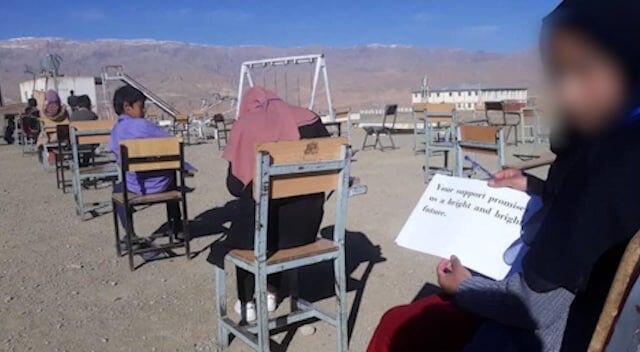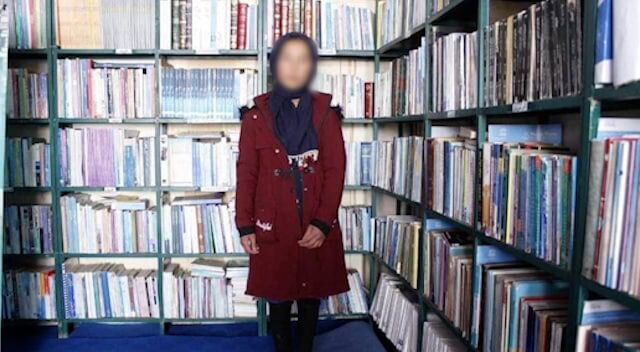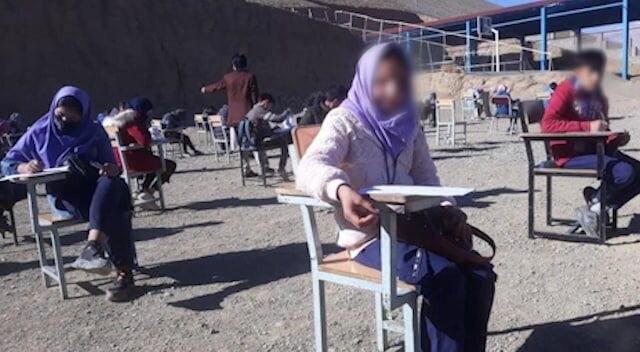![our students in Kabul]()
our students in Kabul
Dear Friends,
The education sector in Afghanistan is in dire shape. The situation is worse in the Hazara communities due to historical racism on the basis of race and religion and due to the Hazara support for the U.S. mission during the past 20 years. Despite the systematic racism and marginalization under Karzai and Ghani regimes, Hazaras excelled at grassroots levels due to the community’s strong emphasis on education that resulted to peace and moderate norms in the localities and geographical areas they inhabit in Afghanistan. A new generation of educated youth, particularly women, emerged that challenged the Hazara’s lower socioeconomic status in Afghanistan. However, all of those gains are at risk due to Taliban’s discriminatory policies on the basis of race and religion towards the Hazaras. As one Hazara social activist pointed out, “our struggle for [our] rights was like playing in a boxing ring with changing rules [under the Ghani and Karzai regimes]. In the Taliban regime, it is no longer about the rules. The ring is absent entirely”. Several reputable grassroots institutions that contributed towards Hazara literacy in the past 20 years have had to close their doors, due to the current rulers harsh gender segregation policies and low student turnout as a result of continuous targeted attacks on Hazara institutions. Among them were known university preparatory centers, “Danesh Saray Concor” and “Gaam Educational Center”, according to Etilaatroz. Not long ago, such institutions were helping tens of thousands of students (girls and boys) take advanced placement courses and improve their chances in the university entrance exams (Concor).
Our partner schools’ approach:
While we are sad about the closure of several institutions in the impoverished Hazara areas of Kabul, we would like to inform you that our partner schools (Marefat, Rahnaward, Pegah and Baba) continue to stay operational. The schools are open to boys grades 1-12 and girls grades 1-6. All of our four schools have designed special programs for girls grades 7-12, where they informally continue their education, albeit serious limitations to comply with the rules, in segregated classrooms, different shifts than boys, and incorporating a combination of remote learning and course content and lectures via USB and telegram groups. Fortunately, our schools have the resources to assign female teachers to girl students. Our teachers and educators are planning to rely on their experience during Taliban’s previous rule to educate girls informally via special programs in accordance with the new guidelines. The girls would take the final exam at the end of the academic year to pass to successive grades on pass/fail basis. The schools will accept the girls’ exam credentials and assign them to proper grades once schools reopen similar to the experience during the political events in 2001-2002.
The foundation will cover the returning students from the previous year in our partner schools, and will increase scholarships to students from Sayed-ul-Shuhada Girls School and Abdul Rahim Shahid schools (these two schools were attacked in the past year). We will provide more details in the next update.
Larger picture:
As we reported in our previous update, the Taliban have closed girls schools when they took power in August 2021. Since then, the Afghan people and the international community have continuously emphasized and pressured the Taliban on reopening of girls' schools. It seems this demand alone is not sufficient and could pave the way towards Taliban tailoring a selective curriculum based on their version of Sharia law.
The Taliban have maintained that they are not against girls' education; however, they will keep girls' schools closed until they introduce reforms to the curriculum and “appropriate environment” in accordance to Sharia (e.g. segregate classrooms, new curriculum and female teachers for girls and male teachers for boys).
In reality, the Taliban would only allow the opening of educational institutions for girls based on how they want the schools to operate. They are not against school closure. For example, thousands of Madrassas (religious schools) with curriculum aligned with Taliban’s value system are open and operating across Afghanistan. They have enormously benefitted as the Madrassas continue to produce graduates with extremist mindset – almost all of the Taliban leadership are Madrassa graduates. They may not have any issue with reopening of the schools; however, they do have a serious issue with the current curriculum and what’s taught at the schools, particularly to girls. In other words, the Taliban considers the modern educational curriculum against their core beliefs. For instance, in the curriculum produced in the past 20 years - women were taught to be equal, independent, have the right to choose, participate in the social and political issues and more. This is unlike obedience to men advocated under Taliban’s Sharia. As such, said core values taught in the curriculum produced during the democracy experiment of 20 years stand in contrast to Taliban’s core value systems. Therefore, the girls school closure is not for the sake of closure only but for reopening under specific conditions and circumstances.
As such, while it is important that international community continues to pressure Afghanistan current rulers on school reopening for girls; however, it is even more crucial to understand that the educational institutions must have ample freedom on designing the curriculum and what’s taught at schools. If the educational institutions are not free of ideological chains and the curriculum not based on scientific research and findings, the end result may not be so different from Madrassas that have contributed towards extremist and intolerant mindset in the past four decades.
And last but not least, these are difficult times for people of Afghanistan, particularly those in the underserved communities. As you may agree, educating the youth, particularly girls, are so much more important under the current circumstances. We cannot continue our work without your support. We are grateful for your generosity and together let us continue to provide hope to Afghan youth through the gift of quality education.
![Teachers at Rahnaward School]()
Teachers at Rahnaward School
![]()
![]()
Links:
![Share on Twitter]()
![Share on Facebook]()


